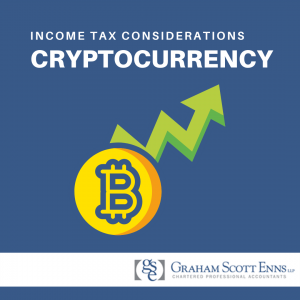For new and existing personal income tax clients, here are some reminders and new information regarding GSE’s personal income tax preparation process.
1. We continue to operate in accordance with the ever-changing Public Health Guidelines as well as our own COVID-19 office policies. We continue to provide multiple methods to accommodate the receipt of your income tax documents in a secure and safe manner.
a) Secure online Portal – Please upload supporting documents via our Secure client portal. We prefer PDF files and recommend the use of an app such as Microsoft Lens (available in your favourite app store) to help you convert image files to a PDF. When in doubt, submit what you have and we’ll reach out if the format is not compatible.
OR
b) ST THOMAS – Access to the office is by appointment only. Please drop off supporting documents to the secure drop box at the front of the County of Elgin building. This drop-box is emptied daily and allows us to have fewer clients in our reception area. If your item is too big for the drop-box, please walk inside and there is a reception area where you can leave your package. The drop-off hours are 8:30 – 4:30pm, Monday to Friday.
OR
c) AYLMER – Please drop off supporting documents to the secure drop box located directly outside of our regular main reception lobby door. This drop-box is emptied daily and allows us to have fewer clients in our reception area. If your item is too big for the drop-box, please refer to c) below. The drop-off hours are 8:30 – 5:00 pm, Monday to Friday.
OR
d) If you prefer, please call the office and one of our friendly administrative staff will arrange a time for you to come in and drop off your documents. If you need to meet with a GSE Firm Member to review your documents, please make an appointment in advance as well. All visits to the office are by appointment only.
OR
e) Some combination of the above! Perhaps you’ve physically dropped off your documents but located one more slip that you’d like to scan to your secure Portal – go for it.
2. We have a new Document Library on our website. Here you will find the following documents:
a) 2021 Personal Income Tax Return Checklist – please review this listing to determine if you are submitting all necessary documents to support your reported income, deductions and credits. Within the Checklist there is some helpful information about how some of COVID-19 government benefits will be treated on your personal return, as well as the impact of working from home.
b) T1 Brief Client Questions – Please complete these questions on an annual basis. Either print and drop them off with your personal taxes or upload your responses to the Portal. These questions help us to ensure we have accurate information about your current tax situation.
c) T1 Client Questions Form – We highly recommend this Form for new clients or returning clients with changing tax situations. Either print and drop it off with your personal taxes or upload your responses to the Portal.
d) Final Return & Estate Checklist – If you are assisting with the final tax return for someone who has recently passed away, please complete and return this checklist. It outlines some of the additional information we will require.
e) Authorization/Cancellation Request Form – For new clients to allow us to communicate with the Canada Revenue Agency on your behalf.
f) Decision tree to help you determine your tax deduction from working from home – Information to help you determine whether you qualify to claim home office expenses where you are required to work from home by your employer, or whether you can claim the tax deduction for working from home due to the Covid -19 pandemic and whether to use the detailed or simplified method of claim. Note that employees can only claim a reasonable portion of the following under the detailed method:
-
- Electricity
- Heat
- Water
- Utility portion of condo fees (must obtain from Condo Corporation)
- Home internet access fees (cost of plan only, new for 2020)
- Maintenance and minor repairs (related to the workspace only)
- Rent
3. How do I get my documents and personal tax return back?
a) Once your tax return has been prepared and reviewed, you will receive a call indicating that your personal income taxes have been completed.
b) If you have not already told us, we will ask if you would like it back electronically (via our Secure online portal) or a paper copy (which can be picked-up at a scheduled appointment time). Prior to us filing your return, we require a signature – this can be done either via Portal (using an electronic signature – DocuSign), via Portal (with a scanned upload of the signed document), via fax, via Mail, via drop-box at our office, or it can be signed in-person at the time of your scheduled pick-up.
As always, if you have any questions, please reach out to us at (519) 633-0700/ (519) 773-9265 or contact the individual you usually work with.
Happy tax filing!
Please follow us on social media for the latest updates:
Facebook
Instagram
LinkedIn






